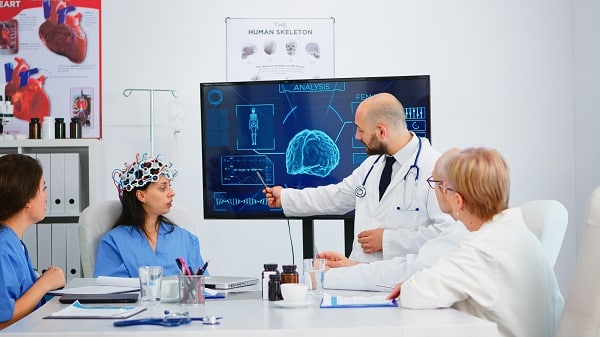In an increasingly competitive world, the quest for cognitive enhancement is a growing trend. One aspect of this trend that has gained significant traction in recent years is the use of nootropics. These ‘smart drugs’ are hailed by some as miracle supplements that can boost memory, attention, creativity, and even mood. But how much of this is grounded in scientific evidence, and how much is mere hype? This article will dive deep into the world of nootropics, exploring their potential benefits, the skepticism around them, and ultimately, whether they are a panacea for brain health or just a passing fad.
Contents
Understanding Nootropics

At their core, nootropics are substances that purport to improve cognitive function. These compounds come in many forms, from dietary supplements like caffeine and L-Theanine to prescription drugs like Modafinil. The term “nootropic” comes from the Greek words “noos,” meaning mind, and “tropein,” meaning towards. Hence, nootropics are, in essence, compounds that aim to enhance the mind’s function.
The most commonly used nootropics are stimulants like caffeine, which boosts alertness, and L-Theanine found in green tea, which promotes relaxation without sedation. Other substances, such as Modafinil, a prescription drug for narcolepsy, are used off-label for their purported ability to increase focus and wakefulness. There is also a growing interest in racetams and other synthetic nootropics, which promise a variety of cognitive benefits.
The Science Behind Nootropics

The science behind nootropics is complex and multifaceted. These substances are thought to work by interacting with various neurotransmitters in the brain, thereby influencing cognitive function. For example, caffeine, a widely consumed nootropic, works by blocking adenosine receptors in the brain, thus promoting alertness and reducing the sensation of fatigue.
However, the science behind many nootropics remains less understood. For instance, some synthetic nootropics like Piracetam are thought to improve memory and cognition, but their exact mechanism of action remains unknown. Nevertheless, numerous studies support the cognitive-enhancing effects of these substances, even if we don’t fully understand how they work.
The Benefits Of Nootropics

The potential benefits of nootropics are vast and varied. One of the main draws of these substances is their potential to enhance memory. For instance, studies have shown that substances like Bacopa Monnieri, a herb used in traditional Ayurvedic medicine, can improve memory recall and retention.
Another potential benefit of nootropics is their ability to improve focus and attention. Substances like caffeine and Modafinil are renowned for their ability to promote wakefulness and improve concentration, making them popular among students and professionals alike. Other nootropics, like Rhodiola Rosea and L-Theanine, are used for their purported ability to reduce stress and anxiety, thereby improving mental performance under pressure.
The Skepticism Around Nootropics

Despite the growing popularity of nootropics, there is also a fair amount of skepticism around these substances. One concern is that the benefits of nootropics may be overblown or even entirely due to placebo effects. While it’s undeniable that expectation can play a significant role in perceived effects, this doesn’t necessarily invalidate the benefits of nootropics.
More concerningly, the long-term effects of many nootropics remain largely unknown due to a lack of longitudinal studies. This uncertainty, coupled with potential side effects like insomnia, anxiety, and dependency issues associated with certain substances like caffeine and Modafinil, raises legitimate questions about the safety and efficacy of these compounds. As such, while the potential benefits of nootropics are enticing, it’s crucial to approach them with caution and a healthy dose of skepticism.
Real-Life Experiences With Nootropics

Anecdotal reports from people who use nootropics often provide a compelling case for their benefits. Many individuals report experiencing improved focus, memory, and creativity after taking these substances. For instance, students often turn to nootropics like Modafinil and caffeine to pull all-nighters or boost their performance during exams.
However, it’s also worth noting that the effectiveness of nootropics can vary significantly between individuals. Factors like genetics, overall health, and lifestyle can all influence how a person responds to a particular nootropic. Additionally, it’s crucial to remember that anecdotes and personal testimonials, while interesting, should not replace scientific evidence and personal medical advice.
How to Safely Use Nootropics

If you’re considering using nootropics, there are several steps you can take to ensure you do so safely. First and foremost, it’s crucial to consult with a healthcare professional before starting any new supplement regimen, particularly if you’re taking other medications or have underlying health conditions.
Dosage is another essential consideration. Some substances, like caffeine, can have harmful effects when consumed in excess. Always start with the lowest recommended dose and gradually increase if necessary. It’s also advisable to cycle your nootropic use, taking breaks to prevent tolerance and dependency.
The Future of Nootropics

The future of nootropics is uncertain but intriguing. As the understanding of the brain and its functioning expands, so too does the potential for new and improved nootropics. Ongoing research into substances like psychedelics and neurotrophic factors promises potential breakthroughs in cognitive enhancement.
However, it’s also possible that the current popularity of nootropics is a passing trend fueled by society’s relentless pursuit of productivity and performance. Whether nootropics will become a mainstay in wellness routines or fade away as another wellness fad remains to be seen.
Explore The World Of Nootropics!
As you can see, nootropics represent a fascinating intersection of science, health, and the ongoing quest for cognitive enhancement. While these substances offer intriguing potential benefits, it’s crucial to approach them with a healthy dose of skepticism and caution. Ultimately, whether nootropics are a legitimate method for boosting brain health or just a passing fad is a question that can only be answered with further research and time. Until then, the decision to use nootropics should be made carefully. Be sure to consider both the potential benefits and risks.


